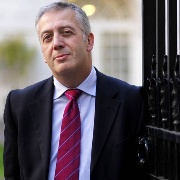Analysis: Revalidation loses GPs’ goodwill

Just over a year after it was first introduced, there is mounting evidence that the revalidation process is becoming a bureaucratic nightmare for some GPs.
The GMC promised the whole exercise would take only a day to complete, but GP leaders are complaining about 70-hour marathons to collect evidence.
The scheme was designed to weed out dodgy doctors, but figures obtained by Pulse reveal just 23 out of more than 8,000 GPs assessed by September had concerns flagged and the GMC is unable to say whether or not any of those have entered remediation. With one GPC negotiator now calling for a grassroots revolt over the burdens of the scheme, is it time for a rethink of revalidation?
The GMC has declared itself ‘pleased with progress’ after the first year of the scheme, despite more than one in 10 GPs having their revalidation deferred by the regulator. Figures released last month showed that 10,288 GPs were revalidated in the first year of the scheme, while 1,171 GPs had their revalidation deferred. Responsible officers can recommend deferral if they cannot make a decision on the basis of the information currently available.
We are pleased with the progress made in the first year
Niall Dickson
The GMC says the large number of deferrals was ‘expected’ and insists revalidation is already making a difference to the standard of doctors’ continuing training. Chief executive Niall Dickson says: ‘These are very early days but we are pleased with the progress made in the first year. This new system of checks is a world first and over time we believe it will make a significant contribution towards making sure patients in the UK receive safe, effective care.
‘Already we see signs that it is making an impact, with hospitals and other healthcare organisations recognising their responsibility not only to make sure all their doctors have the attitude and skills to deliver high-quality care, but also that they have the support and information they need, to assess and reflect on their practice.’
Growing burden
The GMC may present the scheme as a success, but when pressed by Pulse on the number of GPs for whom genuine concerns were uncovered, it could only point to figures correct up until September 2012, which showed just 23 GPs had been subject to an ‘ongoing process’. According to the regulator, this means the GPs were either undergoing remediation or required to complete another local process before they can be revalidated.
In addition, some 851 GPs were unable to provide sufficient evidence to be revalidated. Many of them are doctors in training who were first waiting to complete their training, although the GMC is unable to give a full breakdown of why GPs were unable to submit sufficient evidence.
The GMC is unable to set out the reasons for this difficulty in gathering evidence. But as Dr Dean Marshall, the GPC’s lead negotiator for revalidation issues, says: ‘We’ve had no indication that [the deferrals are] due to clinical issues, and the vast majority are due to administrative problems.’
Revalidation was meant to restore trust in the medical profession, but many prominent GPs have voiced concerns that the whole process is ‘becoming overly burdensome’.
In November, GPC negotiator Dr Peter Holden predicted the GMC would soon have a ‘revolt’ on its hands after he found himself losing more than 70 hours to the annual appraisal process since revalidation was introduced.
This is all introspective crap, at a time when we’re under immense pressure
Dr Peter Holden
He told Pulse: ‘A lot of us are getting sick of justifying every breath we take and categorising every motion we pass. This is all introspective crap, at a time when we’re under immense pressure. A lot of us feel this is becoming overkill.’
Dr Holden is by no means alone. Other GPs are taking drastic measures. Dr Abdul Qadri, a GP in Stratford, east London, says revalidation was the last straw in prompting his retirement: ‘I suddenly was exhausted and unable to have a good night’s sleep… I decided I will retire on 31 March. Having worked as a successful GP since April 1982, it felt humiliating having to prove myself.’
The main problems lie with multi-source feedback, GPs say.
Related articles
Furious GPC negotiator predicts revalidation ‘revolt’
Dr Manoj Pai, a GP in Coventry, says: ‘I get multi-source feedback every day from my patients saying that I’m not accessible and my appointments are not available, and the telephones are blocked.’
But Dr Pai’s practice has already put up improvement plans, which have won approval from his local area team. He feels collecting and reflecting on this extra patient feedback compounds the access problem. ‘It’s a sterile exercise, and it’s making me less available for my patients, because I’m getting tied down doing this.’
Regional variation
This negative experience is not shared across all areas of the country, however.
Dr Peter Graves, chief executive of Bedfordshire and Hertfordshire LMC, says just four out of out of 1,500 GPs have contacted him with concerns about the process, while in Northumberland, LMC medical secretary Jane Lothian says her revalidation was straightforward, after a rigorous appraisal process over the past five years.
Dr Marshall says the desire to promote localism in England is behind many of the difficulties: ‘It’s the usual problem that England decides to try and make things local without people at national level wanting to resolve the issues,’ he says.
‘There are too many empires in England, and that allows people to either “interpret guidance” or put their own little spin on it. But that doesn’t mean that it has served doctors well.’
One particularly concerning development is that some local area teams are using revalidation as a performance-management tool. In West Essex, local CCGs were asked to flag up any issues with GPs undergoing revalidation – a situation the local LMC said was putting CCGs in an ‘inappropriate’ position.
Is the GPC changing tack?
The problems with revalidation have become such an irritant that some are calling on the GPC to reconsider its support for the scheme.
Dr Holden is imploring grassroots GPs to raise the issue at the LMCs conference and the BMA’s annual representatives meeting. He says: ‘[GPs with concerns] need to go through the LMC conference or BMA ARM to mandate us to renegotiate the details of what is needed.’
Dr Marshall says the GPC has formed a ‘national revalidation council’, which aims to get the relevant bodies to discuss issues in February: ‘We think there should be an identified group to deal with GP issues.’
But if the BMA does not change its policy, there are fears the existing problems could be magnified over the next few years.
Dr Philip Fielding, chair of Gloucestershire LMC, says: ‘The first year’s revalidation is meant to be the keen ones, the leaders, the LMCs, the appraisers themselves. So if they don’t get it right in the first years, they’re not going to get it right in the next couple of years with the regular doctors engaging – or not, as the case may be.’
Five tips for dealing with revalidation

1 Remember there is no mandatory requirement to use one particular type of electronic resource for storing and submitting the information required for appraisal and revalidation.
2 Appraisal does not equal revalidation – it covers all aspects of a doctor’s practice, but responsible officers (ROs) will consider the output of appraisal alongside other information that may be available from local clinical governance systems.
3 If a GP has a concern about their RO potentially having a conflict of interest, such as the RO performance- managing the appraisee, they can ask their designated body to appoint an alternative RO.
4 Deferral of revalidation is a neutral act and should have no impact on the ability of a doctor to undertake clinical work; this is of particular importance for locum GPs.
5 Keep in mind that GMC standards for revalidation must be consistently applied by ROs across the UK when making a decision on whether to recommend a doctor for revalidation.
Dr Dean Marshall is the GPC lead on revalidation
Pulse October survey
Take our July 2025 survey to potentially win £1.000 worth of tokens













